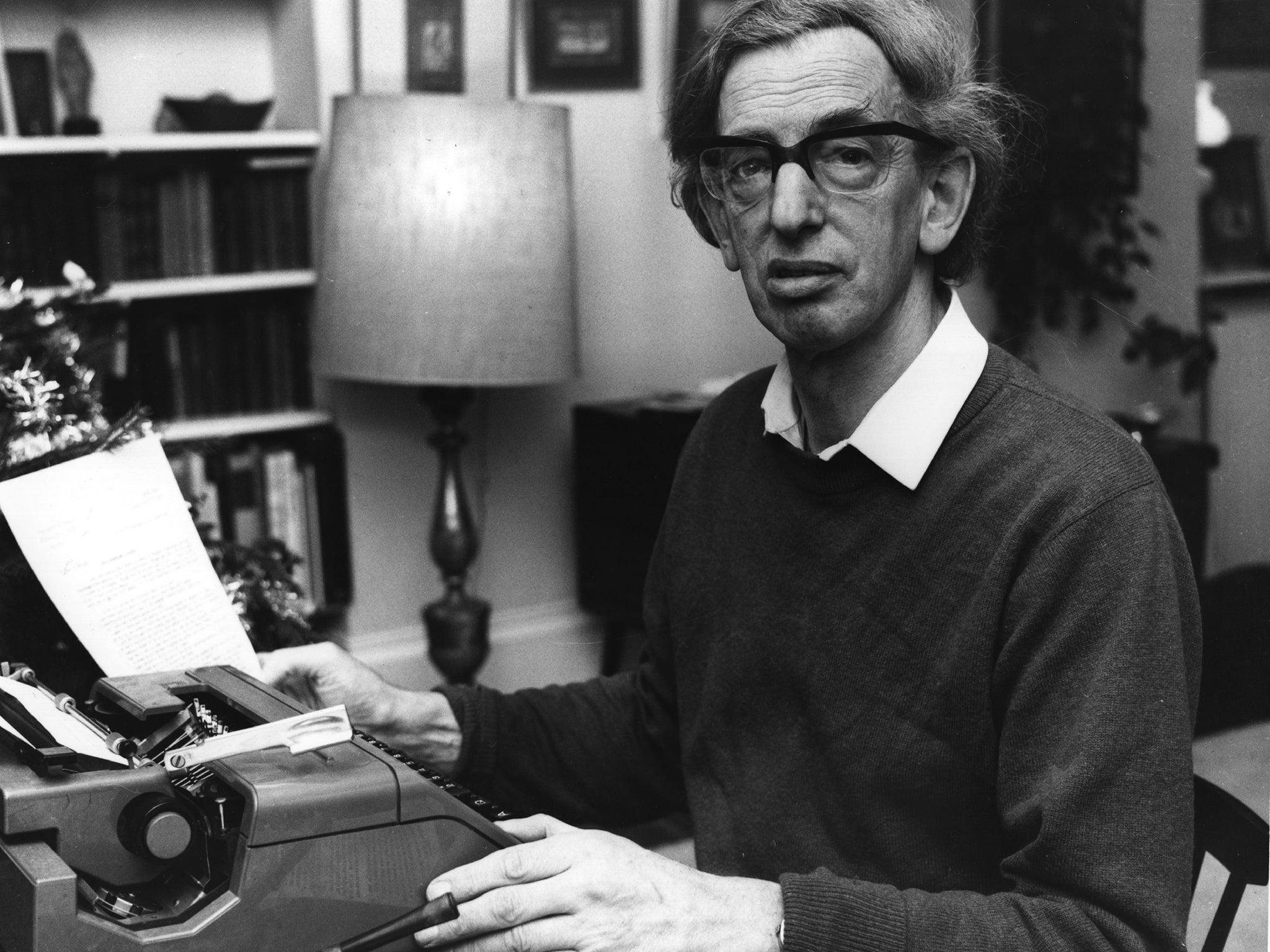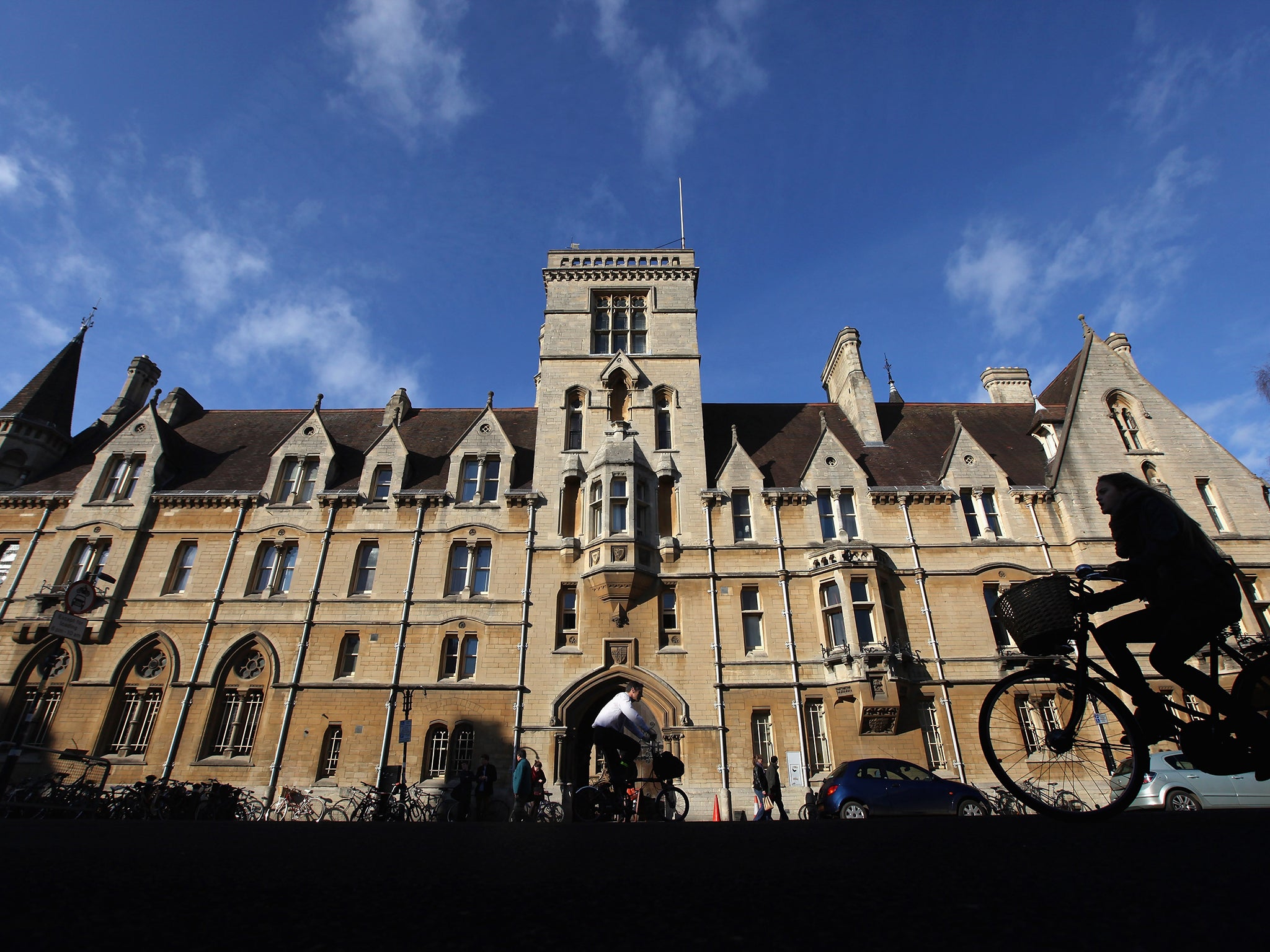Revealed: How MI5 watched the wrong Marxist Oxbridge academics – Christopher Hill and Eric Hobsbawn
Newly declassified documents show how the security service failed to find evidence of treason amongst eminent historians
Your support helps us to tell the story
From reproductive rights to climate change to Big Tech, The Independent is on the ground when the story is developing. Whether it's investigating the financials of Elon Musk's pro-Trump PAC or producing our latest documentary, 'The A Word', which shines a light on the American women fighting for reproductive rights, we know how important it is to parse out the facts from the messaging.
At such a critical moment in US history, we need reporters on the ground. Your donation allows us to keep sending journalists to speak to both sides of the story.
The Independent is trusted by Americans across the entire political spectrum. And unlike many other quality news outlets, we choose not to lock Americans out of our reporting and analysis with paywalls. We believe quality journalism should be available to everyone, paid for by those who can afford it.
Your support makes all the difference.Between them the Oxbridge historians Christopher Hill and Eric Hobsbawn helped recast the teaching of the past in British universities and beyond. But their academic eminence did little to protect them from the Cold War scrutiny of MI5, it has been revealed.
Secret files released today tell the story of how two of Britain’s leading historians were placed under rigorous surveillance by the Security Service after its senior officers became concerned about the influence of communist academics in the country’s top universities.
While the energies of MI5 may have been better deployed winkling out a different set of university-inspired communists in the shape of the Cambridge Five spy ring of Kim Philby and others, scrutiny instead focused on the two openly Marxist scholars amid fears that they were helping Moscow to gain a grip on British academia.
But rather than uncovering evidence of sedition, the documents released today at the National Archives in Kew, west London, show that MI5 had to console itself with tales of marital infidelity, music recitals and turgid doctrinal disputes with the British Communist Party.
By means of phone intercepts, bugged offices, steamed-open mail and informants, the security service painstakingly built up a picture of the personal and political lives of the two historians, ranging from Hobsbawm’s interest in jazz to Hill’s reluctance to give his wife a clothing allowance.
Hobsbawm’s three-volume economic history of the rise of capitalism, which for the first time told the events of the past through the prism of the underclass rather than great men, propelled him to eminence among 20th century British historians. Hill, who was master of Oxford’s Balliol College for 13 years, was considered a world authority on the English Revolution of the 17th century.

But both men’s early embrace of communism as students in the 1930s - ironically around the same time as Philby and the other members of the Cambridge Five were recruited by Moscow - marked them out in the early days of the Cold War as of interest to MI5 amid paranoia about the extent of Soviet entryism.
As the officer who ordered extensive surveillance of Hill, including the tapping of his phone line, put it in 1951: “He is one of the leading communists at Oxford University and plays a prominent role in the Party’s cultural work. He is one of the persons whom I have selected as deserving further investigation, in order to increase our knowledge of communism at the universities.”
But while MI5 fretted about Hill’s openly-declared Marxist and pro-Russian leanings (reinforced during a 10-month trip to Russia in 1936), the only evidence of betrayal it obtained on the lecturer, who had worked for British military intelligence during the war, was that inflicted upon him by his wife.
A secret MI5 memo relating the contents of a bugged conversation in the Party offices reveals how Abraham Lazarus, its south Midlands secretary, confessed to having an affair with Hill’s wife, Inez, in 1948.
The memo said: “The [source] said that they had seen Christopher Hill and he had taken it very well. According to Hill, his wife was a ‘go-getter’ and once she wanted a thing she went on until she got it. Hill had told Abe that his wife would ruin him. Apparently she had already done so financially, because he had come up to town on a lorry.”
The MI5 case officers painted an unflattering picture of the Hills, describing Inez as “a somewhat neurotic, rather emotional and unstable person”, and her historian husband as more interested in funding the Party than her wardrobe.
Another acid memo written in 1950 said: “Since he is reputed to give his wife a very small sum as a dress allowance or pin money, Inez Hill may well resent the Communist Party absorbing what would otherwise go towards a new summer dress for herself.”

It added: “Another source has often suggested that Inez Hill is not only fed up with her husband’s politics, but also with her husband… Christopher Hill himself has been described in the past as somewhat mean-minded, pompous and tiresome.”
Though brutal in its assessment of Hill’s character, MI5 was proved right about the state of his marriage - by 1954 the couple had divorced.
The Security Service’s scrutiny of Hobsbawm, who first came to MI5’s attention when he invited a German communist to lecture troops while he was serving in the Army Education Corps in 1942, revealed little of comparable excitement other than a long tussle between him and fellow Marxist academics.
Despite revealing links with senior Communist Party members and the convicted Soviet nuclear spy Alan Nunn May, the MI5 bugging could find no evidence of anything untoward in Hobsbawm’s activities as head of its historian’s group.
Indeed, the harshest words for the academic came from within the ranks of the Party itself after he was found to have written an article under a pseudonym for a non-communist publication. One party official described him as a “dangerous character” while another labelled him “a very slippery customer”.
For his own part, Hobsbawm expressed frustration with his contribution to the Party cause. An “autobiography” obtained by MI5 in 1952 read: “I don’t feel I’ve done what I might for the Party… My sort of professional work is probably the best I can do but I’d quite like to have more to do with factory workers.”
Like many sympathisers, the two historians drifted away from the communist cause in the wake of Moscow’s brutal suppression of the 1956 Hungarian Uprising. Hill left in 1957 while Hobsbawm became avowedly anti-Soviet.
In the meantime, MI5 continued its in-depth surveillance of British academia for any signs of subversion. After Hill had addressed the members of the Reading Communist Party, a police report to the security service noted evidence of the Marxists’ other attempts to gain influence. It recommended scrutiny of the event in question - a “gramophone recital of classical music”.
Join our commenting forum
Join thought-provoking conversations, follow other Independent readers and see their replies
Comments